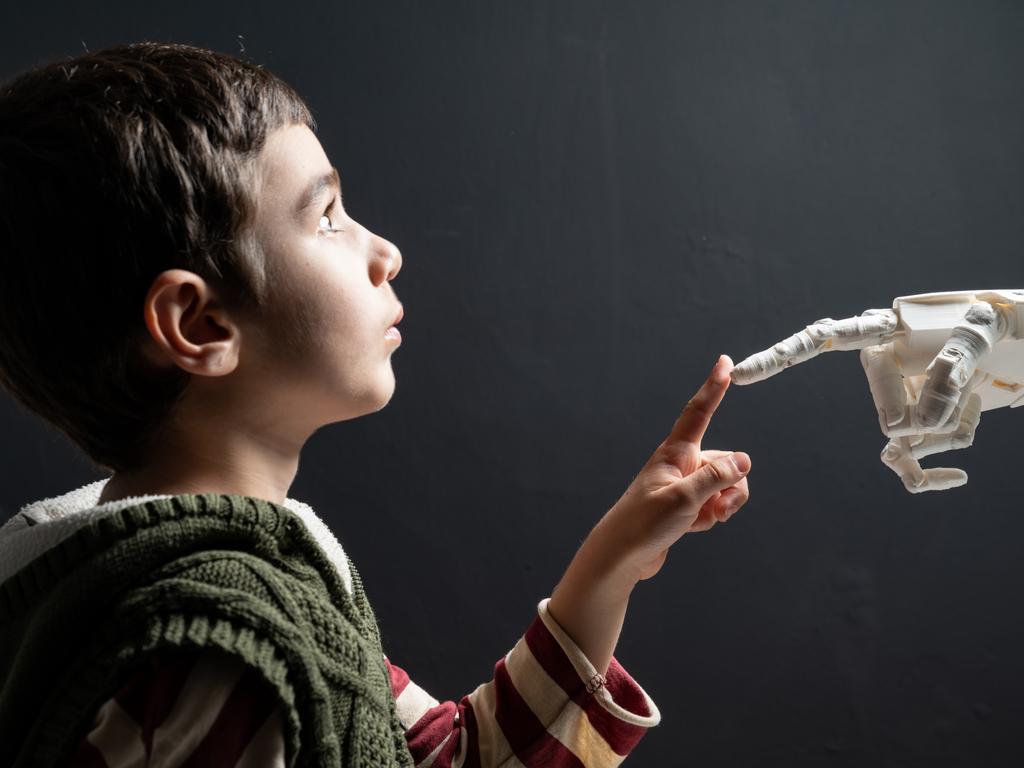When it comes to the reality of life, AI is none the wiser
Artificial intelligence, like any counterfeit to the original, will always disappoint.

If there were an award for the least tech-savvy person in my business, I would win it at a leisurely canter. I’m not a total Luddite, perhaps 65 per cent and rising. I watch peers and clients alike take notes on various devices while I whip out my notebook and write contemporaneous notes with a pen from my late father’s collection. I keep my notebooks chronologically and retain them for several years. Old journalists die hard, I guess.
So it may come as no surprise that I am not as enthusiastic as some about the emergence of artificial intelligence. I stare it down, warily at a distance, almost like a person waiting on the shore and checking for rips before deciding whether to go for a swim.
It seems right now, though, that all the world is genuflecting at the altar of AI. Every industry, every role – AI soon will take centrestage, from banking to agriculture to government to the arts. It’s everywhere and, what’s more, it’s as unregulated as a toddler mainlining fairy floss.
I am not on board, people. I simply can’t accept the idea that the wonder, the miracle of creativity, the ingenuity contained in the human brain and the soul of man could ever be subbed out for what’s essentially a speedier version of Google. Full disclosure: before sitting down to write this column, I’d never engaged with AI. No ChatGPT for GT. So, in the spirit of fairness, I felt it only proper that I wade in and dunk myself under.
First step, Google ChatGPT. Nailed that, how hard can it be? The program tells me they (whoever they are, our cyber overlords) have trained a model that not only promises to interact in a conversational way but will “admit its mistakes, answer follow-up questions and reject inappropriate requests”. How very unhuman of it.
I sign up. My password? StUPidAI. The program ignored the dig. It wanted my birth date and phone number (faked them both) and before I could say these aren’t the droids you’re looking for, I’m away.
I go straight to the top of the tree. What is the heart of human creativity, I ask.
Old mate AI spits out the most clinical, cold, functional and, to be honest, underwhelming laundry list of data you can imagine. It is the antithesis of creativity. I thank it (seems the polite thing to do) and respond with: Don’t you think that’s an uncreative answer?
AI, it seems, has a thin skin. I don’t possess personal opinions or emotions, it shoots back at me.
Oh, the petty joy in such unintended validation of my theory.
In an age where everything can be faked, why would anyone want fake intelligence? I want the real thing, in a “give me liberty or give me death” kind of way. The worst thing that could happen is AI being introduced into schools.
Even the idea of using AI as a “thought starter” makes me bristle. My journey as a writer has been a privilege, the weight of which I hold carefully. I’ve sat many a late night in front of a screen searching for words that refuse to arrive. I’ve written and deleted thousands of lines in an attempt to find THE ONES that open the magical door to a conversation. There is a beauty in the pain of that process. There’s a value in the end result that can’t be bought by the laziness of using AI to generate thoughts.
For me, the antidote for late-night moments of literary inertia is to make a cup of tea and jump into bed. It seems to trigger something in my brain whereby the minute I find myself comfortable, the words turn up like old friends ready for a yarn. I’ve learned to keep a pen and paper handy.
It’s the same in our professional lives. In my day job, we deal with strategy. Problem solving. Creating. It was bad enough when everyone thought working from home was here to stay, post-Covid. The magic doesn’t happen on Microsoft Teams or Zoom. It happens when living, breathing humans get into the same room, same rhythm, allowing iron to sharpen iron and ideas to be contested. This is where results are born. I defy anyone to tell me their best moments were born on Zoom.
AI can’t replace nuance. It doesn’t have a soul that has known pain or loss, and can’t channel that emotion into words, music or art. It doesn’t have a heart that has been broken or can rejoice in redemption. It can’t yearn, or grieve.
Some may say, well, that’s just the creative space. AI can save lives. Bring efficiency. Maybe. Like anything, there will be exceptions. But AI has no intuition to follow, can’t just know when something isn’t right. When it comes to safety on an oil rig, for example, give me a person with decades of experience and an innate ability to spot trouble before it happens, ahead of AI.
Like with most things that can be faked (boobs, eye colour, meat, news, outrage, victimhood), when it comes to AI, like with any counterfeit to the original, it will always disappoint.







To join the conversation, please log in. Don't have an account? Register
Join the conversation, you are commenting as Logout